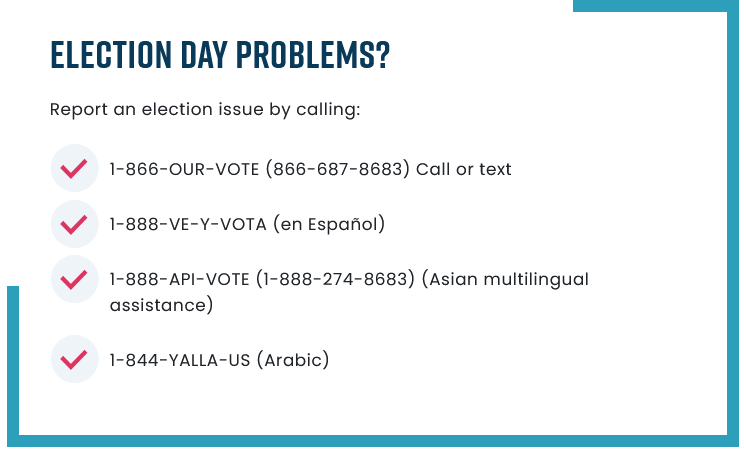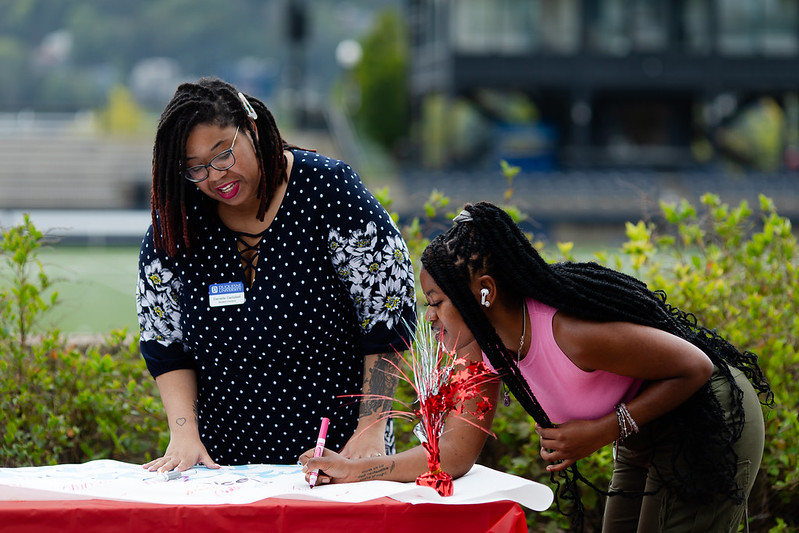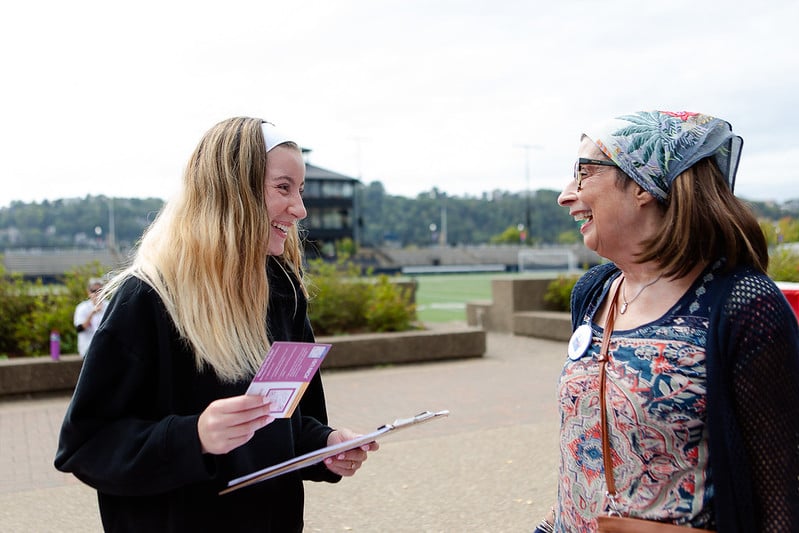Voting is one of the most important ways we can shape our future and reinforce our democratic principles. But sometimes the process can feel intimidating. One way to feel more confident when you go to the polls is to know your Election Day rights.
From making sure your vote is counted to knowing what to do if something goes wrong, here’s a quick rundown of what you’re entitled to as a registered voter to ensure your voice is heard.
,
Stay Updated
Keep up with the voting news. Receive emails to your inbox!
,
1. The Right to Vote Without Discrimination
Legally, no voter can be discriminated against based on race, ethnicity, gender identity, age, religion, sexual orientation, language, socioeconomic status, or disability. This right is protected by the US Constitution and the Voting Rights Act, which aim to ensure fair access to the electoral process for all individuals. All voters, regardless of whether English is their first language or if they have a disability, are entitled to vote.
2. The Right to Options
In states that allow early or mail-in voting, you have the right to cast your ballot using those methods. Learn your state’s options by checking out VOTE411.org, our one-stop shop for election information.
3. The Right to Report Voting Issues
If you encounter problems, you can receive support on Election Day by contacting election officials, calling the Election Protection Hotline numbers outlined below, or contacting federal authorities. You also can file complaints with state or federal authorities at the time of an incident or later.
,

,
4. The Right to Accessibility
Voters with disabilities must be provided with accessible voting equipment or assistance. Polling places are required to accommodate their needs.
5. The Right to Information in Your Language
In jurisdictions covered by language assistance requirements, you are entitled to receive voting materials in a language you understand.
6. The Right to Receive Help
You have the right to assistance in casting your vote from a person of your choice, whether you need it because of a disability, language barrier, or any other reason. Assistance is often provided by a family member, friend, neighbor, or even a poll worker.
,

,
7. The Right to Vote Without Intimidation.
Voters should be free from threats, harassment, or coercion when casting their ballots.
8. The Right to Correct Mistakes
If you make a mistake, you can request a new ballot and correct your vote. No matter the voting method — in-person or by mail — you must request a new ballot before you cast the ballot that contains the mistake.
9. The Right to Request a Provisional Ballot
If your name is not on the voter registration list or your eligibility is challenged by an election official, you have the right to cast a provisional ballot, which will be counted after your eligibility is confirmed.
,

,
10. The Right to Vote if You’re in Line When the Polls Close
As long as you were in line before the polls closed, you may not be turned away simply because the line was long and the polls have closed. You must be allowed to vote if you were in line before the polls closed.
Check or complete your registration, find your polling place, and explore answers to other election-related questions at VOTE411.org. Make your voice heard and exercise your power at the polls this election season!